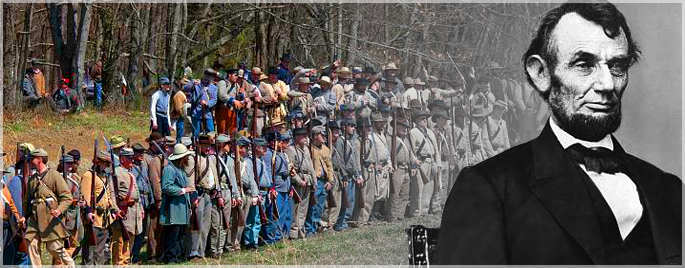
History used to be recorded on paper, in books, newspaper articles, photographs and journals. These days, those records live not on paper, film and tape, but as 1s and 0s on computer disks.
This digitisation of history means it’s more accessible than ever before – all thanks to the internet. You don’t have to go to the library or buy a book to read Barack Obama’s 2008 acceptance speech. And you can see exactly how last year’s Chilean mining drama played out by searching YouTube.
Changing how we report history
As if not content with the vast amount of data we’re creating as history carves its path through our lives, we can’t help looking back too. We’re adapting and updating historical records to fit our online world, and finding new ways to replay things that happened long ago.
Take the Washington Post, which is Tweeting the events of the American Civil War as if they were happening today. It’s probably the only time you’ll get to follow Abraham Lincoln online.
Across the Atlantic, the UK’s Imperial War Museum did something similar – albeit on a less ambitious scale – to mark last year’s 70th anniversary of the Battle of Britain.
However, the Washington Post’s efforts go beyond Twitter. There’s an impressive range of articles, photos and more under the banner ‘Civil War 150’, all to coincide with the war’s 150th anniversary. It’s a great way to encourage people to engage with the past – I wonder how many Washington residents can resist browsing these ‘now and then’ images of the capital.
The space age in the internet age
More recent history isn’t immune either. You can relive the 1969 moon landing through We Choose The Moon. Launched in 2009, again to coincide with an anniversary (in this case, the 40th) this is an interactive, day-by-day recreation of the whole mission – from blast off to splash down.
For those of us who weren’t around to see the moon landing ourselves, it goes some way towards conveying the suspense and exhilaration of watching that fragile craft touch down on another planet. I’m not sure it beats watching the grainy original footage. But it does a great job of showing the enormous efforts that led up to that moment.
Are we changing history?
We’ve become good at finding new, interesting ways to explore the past. But is there a downside? When we show historical events in new ways, do we risk warping our collective understanding of the events themselves? As we retell history, do we risk changing it?
Well, as long as you take note of who’s doing the retelling, probably not. After all, every historical record has to be considered in context, and taken with a dose of commonsense – no matter whether you’re reading the words of a journalist, listening to the voice of a politician or watching a film from a moon landing sceptic.
Historical accounts have always been subjective. The internet doesn’t change that simple truth at all.
March 1st, 2012 by Kris in
Community, Geo-Location